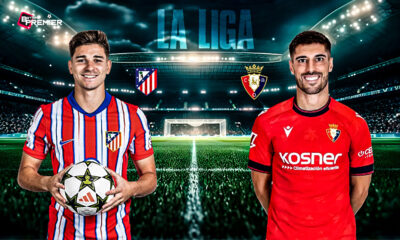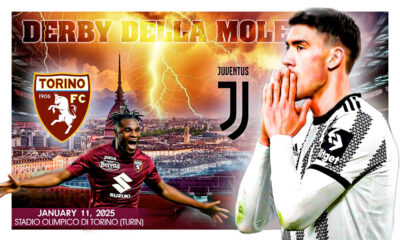
Blaugrana al vent
un crit valent
tenim un nom el sap tothom:
Barça, Barça, Baaarça!
The widespread appeal of football popularized the blue and claret throughout the world in the last decade. At the same time, the story behind ‘Barcelona’ has died down a bit. The intertwining of politics, culture, football and overwhelming emotions make this story a riveting one.
Origin
It all started on 22nd October 1899. Hans Gamper, who will later become Joan Gamper and play a key role in the club, a Swiss man announced the wish to form a football club. On 29th November, a group of players including Walter White, who is also the first president of the club, inaugurated the Barcelona football club. Barcelona went on to garner few successes in the coming years, thanks to the initiative by Gamper.
From the genesis, Barcelona was a symbol of Catalan identity and Catalonia. The people in Catalonia supported the idea of a Federal State in Spain. The founders and most of the early followers leaned towards the left in the political spectrum. Economic hardships formed through the Great Depression in the late 1920s and throughout the 1930s elevated tension in various regions of Spain. Especially, through the turn of events, Catalonia will become the epicentre of opposition.
Spanish Civil War
Gradually, the tectonic plates of politics started gliding with each other. The Republicans running the Second Spanish Republic, in alliance with leftist parties, were facing military opposition from the Nationalists. In one of the earlier incidents, the Barcelona crowd in Les Corts jeered the Royal March on June 14, 1925, as a resistance against the dictatorship rule of Primo de Rivera. Ricocheting Rivera closed the stadium for six months and Joan Gamper was forced to resign.
Like every movement which grows with resistance, the directors of Barcelona decided to go professional in 1926. While the battle outside the field was growing, inside things were going topsy-turvy. Weak performances and growing financial burden led to the suicide of Gamper on July 30, 1930.
A defining moment in club history came years after. The Spanish Civil War started in 1936. Falangists, in alliance with Franco, killed Josep Sunyol on August 6, 1936, the then club president. The forces also imprisoned the president of Real Madrid, Rafael Sanchez Guerra, also a Republican.
Spanish Civil War turned out to be the harbinger of the Second World War. The Nationalists and left-leaning Popular Front government called for support. Italy and Nazi Germany stood in support of the Nationalists. The Soviet Union and European democracies braced the Republicans. Francisco Franco, a nationalist and fascist dictator, led the military coup against Republicans. People with ties to the Republican front were hunted down, the Catalan language was banned, cultural symbols were destructed and Castilian (Spanish) was imposed.
Years of war followed and both sides sustained significant damage. On March 16, 1938, the Italian Air Force dropped bombs on Barcelona. Around 3000 people died and Les Corts stuck in the destruction.
Arch-rivals – Real Madrid
The Spanish Civil War ended in 1939, Franciso Franco overtook control of the nation. The political landscape changed. Madrid, who once supported Barcelona in its independence struggle, switched sides. The fact that people in Madrid spoke Castilian helped. However, the war will have reverberations in the upcoming years.
Meanwhile, Catalans faced mounting troubles but the football improved. In 1943, Copa del Generalisimo semi-finals, Barcelona beat Real Madrid in the first leg 3-0 at home. But, the Madridistas stifled the Catalans 11-1. This game identified Madrid as the side supporting the dictators and Barcelona as the victims.
Dispersing after a game at Les Corts 2-1 in 1951, the Catalan crowd walked to their homes rather than taking trams. “Coincidentally,” a tram strike was in effect on that day in Barcelona. People who fought in the Civil War resumed back to their life. But, the post-war period was nowhere like before it all started.
Having the stadium named after him, Santiago Bernabeu was an ethereal player. He was also the former club President of Real Madrid, who fought for the Nationalists during the Spanish Civil War.
In 1968, Barcelona overpowered Real Madrid 1-0 in the Copa del Generalisimo final. Francisco Franco was watching the game from the stands, the Catalans enjoyed this triumph. The man who led them to the victory, Barcelona’s coach Salvador Artigan, was a former pilot in the Civil War for Republicans.
Més que un club
Coexistence became the real deal after the war. The directors and presidents of Barcelona recognized this as did the Nationalist regime. Eventually, in 1974, Spain transitioned to democracy. As a European country, Spain has a rich history of football and its culture.
Before Globalization, all the Spanish clubs were owned by Socios (fans). In that way, Josep Lluis Nunez became the first elected president of FC Barcelona in 1978. After globalization, a law of 10/1990 stated that only the clubs who can show profits in the previous five seasons can be owned by Socios. The bigger clubs, Barcelona, Real Madrid, Athletic Bilbao and Osasuna, met with this criteria. Other clubs in Spain were named as, SAD’s (Sociedad Anonimo Deportiva). As of 2020, Barcelona reported 140,000 socios. These socios have the ability to elect a president. Socio-owned clubs can get loans at cheaper interest, the ownership can’t be changed overnight, can’t raise funds or trade their shares publicly, nor can they sell their shares and they have to depend on their revenues. These revenues mainly come from broadcasting rights, tickets and branding.
Apart from the colossal achievements of the club in recent decades, the Catalan identity is instilled in the minds of fans and players. Gerard Pique showed his support for the Catalan independence referendum in 2017, the talented defender has been vocal about this for a long time. Mounting criticism even forced the Catalan to quit from Spain national team in 2018. He is currently playing for Catalonia, a team organized by the Catalan Football Federation. Another early supporter for the Catalonian team is Pique’s former teammate, Xavi. The Catalan simultaneously played for Spain and Catalonia throughout his career. But, some, if not all, of the independence aspiration has died down in Catalonia and is hinting at a resurgence of Nationalism. However, the values which the club inspire are eternal. Humility, ambition, teamwork and respect are deeply embedded in the veins of Barcelona players. One of the core reasons for this is La Masia, the youth academy of FC Barcelona.
La Masia
Pep Guardiola was one of the first few players graduating out of La Masia. The Spaniard was a cerebral player during his football career. Things only got better after him, nurturing Lionel Messi, Barcelona achieved global recognition with ease. A natural in football, the Argentinian needed some special care due to his condition. Suffering from Growth Hormone Deficiency, Messi’s father was unable to manage the medical expenses for his young genius son. La Masia provided it and the loyalty which Messi has shown to the club is unparalleled. Xavi, Andres Iniesta, Sergio Busquets, Jordi Alba and Carlos Puyol are other notable alumni of the academy. Under Guardiola, the club flourished to a whole new level. With Messi, Xavi, Iniesta, Busquets, Alba and Pique, the cerebral manager won a sextuple in 2009. Eleven years and a phenomenal Bayern Munich side it took to level that record.
Ultimately, the love of fans worldwide levitates each goal scored, record break and milestones reached to a heavenly scale.
Recent Blog
-


featured
/ 8 hours ago2024-25 NFL Wild Card Round Playoffs – Match Details and Predictions
The 2024-25 NFL Wild Card Round is about to ignite the postseason with a...
By starman -


featured
/ 8 hours agoFA Cup 2024-25: A Look Back at Memorable Matches—Round 3 Drama, Past Unfolds, Odds and Predictions
The FA Cup 2024-25 promises to be a thrilling rollercoaster ride, packed with twists...
By starman -


featured
/ 8 hours ago2024-25 La Liga Matchday 19: Event Details, Odds, and Predictions
After a brief hiatus, the 2024-25 La Liga is set to resume with matchday...
By starman









